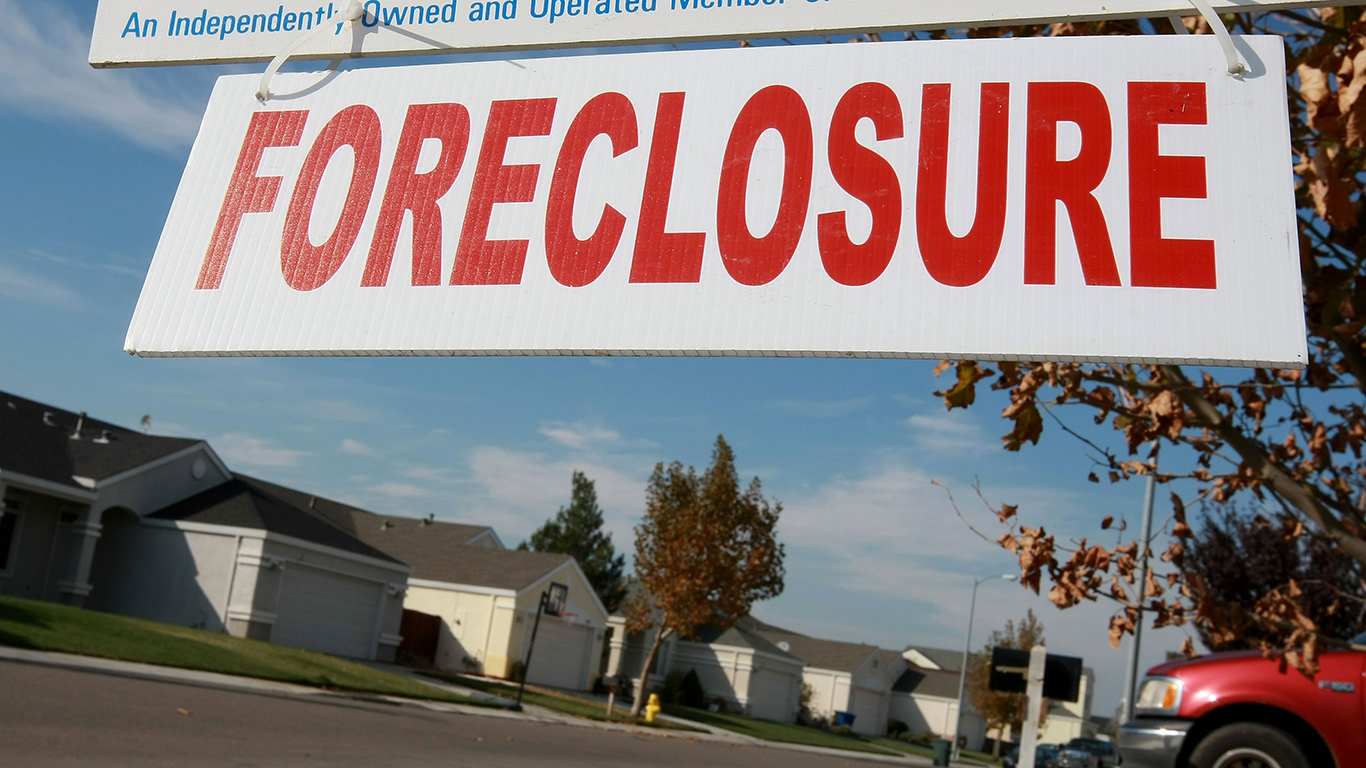
The share of home mortgage loan payments that are 30 days or more past due fell to a 20-year low of 4% for the month of March, unchanged month over month and down from 4.3% in March 2018. The foreclosure inventory rate fell from 0.6% to 0.4% year over year, its lowest for the month in at least 20 years.
The foreclosure rate remains below the average pre-crisis level of 0.6%, as rising home values have driven homeowners’ equity to record levels according to CoreLogic. As owner equity rises, the risk of foreclosure falls.
The data was reported Tuesday by CoreLogic in its Loan Performance Insights report for March. Early-stage delinquencies, defined as 30 to 59 days past due, increased from 1.8% to 2.0% year over year in March. The share of mortgages that were 60 to 89 days past due in March was 0.6%, unchanged compared with last year’s rate. According to CoreLogic, measuring early-stage delinquency rates is important for analyzing the health of the mortgage market.
The share of mortgages that transitioned from current to 30 days past due was 0.9% in March 2019, flat compared to 0.7% a year ago. This year’s rate remains below the transition rate of 1.2%, just before the housing crisis struck and well below the peak rate of 2% in November 2008.
Serious delinquency rates (defined as 90 days or more past due) fell in 46 states and remained unchanged in four (Minnesota, Montana, Nebraska and North Dakota). A total of 29 U.S. metro areas posted a year-over-year increase in the serious delinquency rate, while 32 posted no change and the rest posted decreases.
CoreLogic’s chief economist, Dr. Frank Nothaft, said, “The increase in the overall delinquency rate in 42% of states most likely indicates many Americans were caught off guard by their expenses in early 2019. A strong economy, labor market and record levels of home equity should limit delinquencies from progressing to later stages.”
Frank Martell, president and CEO of CoreLogic, added, “Delinquency rates and foreclosures continue to drop through March and should decline further in the months ahead barring any serious dislocations from recent flooding in the mid-west or a severe Atlantic hurricane and/or wildfire season on the coasts.”
In comments released last week ahead of a weekend meeting of G-20 finance ministers and central bankers, International Monetary Fund managing director Christine Lagarde warned about the rising levels of U.S. public debt and the trade war with China, both of which could affect interest rates and job creation.
Mortgage rates on a 30-year fixed-rate loan had risen to 3.93% on Monday, from a low of 3.88% at the end of last week.
Among the nation’s largest cities, New York and Miami have the highest rate of mortgages at least 30 days past due at 5.5%. San Francisco had the lowest rate, 1.4%.
The states with the highest rates of mortgages at least 30 days past due are Mississippi, Louisiana, Alabama, New York and West Virginia, all with rates well above the national average of 4%. The states with the lowest rates of mortgages at least 30 days past due are North Dakota, Idaho, Washington, Oregon and Colorado, all with rates of around 2% or below.
It’s Your Money, Your Future—Own It (sponsor)
Retirement can be daunting, but it doesn’t need to be.
Imagine having an expert in your corner to help you with your financial goals. Someone to help you determine if you’re ahead, behind, or right on track. With SmartAsset, that’s not just a dream—it’s reality. This free tool connects you with pre-screened financial advisors who work in your best interests. It’s quick, it’s easy, so take the leap today and start planning smarter!
Don’t waste another minute; get started right here and help your retirement dreams become a retirement reality.
Thank you for reading! Have some feedback for us?
Contact the 24/7 Wall St. editorial team.
 24/7 Wall St.
24/7 Wall St.

